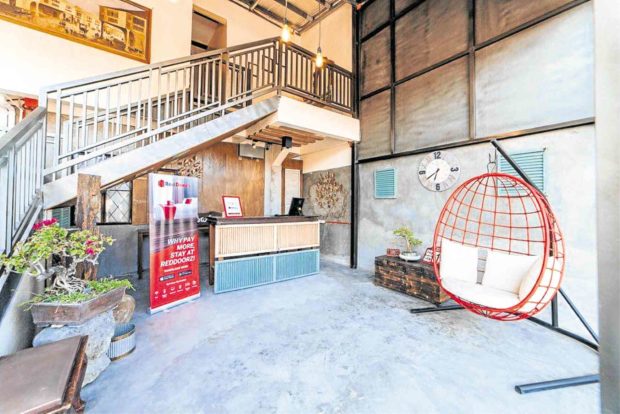
RedDoorz is a tech-enabled chain of budget hotels that provides the finest affordable stays for its customers depending on their needs and wants.
RedDoorz is an unconventionally recognizable brand. Day and night, one doesn’t fail to notice the hotels stamped with the name, owing to the bright red color.
What it does, however, can be a complete mystery.
Knowing the herculean task it is taking on, however, one would feel shame not taking time to find out what RedDoorz actually does: It is in the business of revolutionizing the budget hotel chain industry with standards that protect the interest of consumers and technology solutions that help businesses profit better.
The consumer anxiety was a lift-off point for the business when it launched in 2015, said RedDoorz CEO Amit Saberwal in an exclusive interview with the Inquirer earlier this week. “When we did consumer research in the early days, consumers told us that when they go into an affordable, non-branded property, there is anxiety in their minds that they don’t know what they will get … We took that anxiety away.”
RedDoorz is targeting to have 400 to 500 partners by the end of the year. At present, they have over 200 properties in more than 20 towns and cities.
Standard
RedDoorz’s solution has been standardized service for budget accommodations: “You will have a nice, comfortable sleep; you will have good Wifi, mineral water, toiletries that are four-star (hotel) standard, a nice comfortable bed (and) a nice clean bathroom.”
The RedDoorz stamp also means a television in one’s room, good customer service and a 24-hour front desk.
It’s not the Ritz but you will “get your money’s worth and more”—or you get your money back, Saberwal said.
The service is primarily geared for a younger demographic, who would hunt for no-frills accommodations they can easily book. Responding to this consumer base, RedDoorz has a website and an app where users can book boutique hotels, inns, apartels, condotels and other accommodations. The booking platforms provide reviews, directions to the locations, a rundown of amenities and more. Payment methods include credit cards, DragonPay (via bank transfer and 7-Eleven outlets) and cash.
RedDoorz’s assurances have enabled a very high repeat rate.
RedDoorz is a tech-enabled chain of budget hotels that provides the finest affordable stays for its customers depending on their needs and wants.
Disruptor
A disruptor in the hospitality industry, RedDoorz mustered up a network of properties in Indonesia, Singapore, the Philippines, and Vietnam without directly owning a single property. Since launching in the Philippines in mid-2018, it now offers 5,000 rooms from 200-plus properties spread out in over 20 cities. RedDoorz credits this to their assurance of both profit and partnership.
Saberwal gave an example: “As an individual asset owner who has multiple businesses in Cebu (including) a 30-room hotel, I find it very difficult to actually know what time to price my property, what are my customers looking for, what are the basic customer experiences that my people should deliver, and so our tech takes care of everything.”
Through machine learning, prices can change up to 20 times an hour. The algorithm knows how to optimize occupancy when demand is low and profit when it is high.
“Costs go down because a lot of the functions get automated,” said Saberwal. “So, the property focuses on two things—giving the key and also cleaning the room up to a particular standard.”
This is where the partnership steps in. RedDoorz offers basic, refresher, needs-based, and surprise-audit trainings for the staff. Before properties are made available for online booking, they have to clear RedDoorz’s standards. The worst cases take six months to fully transform, and RedDoorz sees them through the process.
RedDoorz has thus given new life to underperforming hospitality brands.
Expansion
RedDoorz now guns for aggressive growth, recognizing the “billion-dollar opportunity” in the Southeast Asian online travel market, which Google predicts will zoom to $76 billion by 2025. It also hopes to file for an initial public offering between 2022 and 2023.
For the Philippines, the No. 2 market next to Indonesia, that means “we will triple our footprint in 2020 from December of 2019,” said Saberwal. The company’s expansion pipeline includes any city that has a major airport or seaport.
The RedDoorz chain of affordable hotels is now available to an even bigger market of travelers throughout the Philippines with new locations in Baguio, Palawan, Iloilo, Bacolod and Davao.
“We can invest in people, training, money, whatever it takes to get it right,” added Saberwal. “To reach our goal for 2022 to 2023, 2020 becomes a critical year for us. A lot of reputed investors are showing faith in us… The 2020 numbers are approximately two and a half to three times the growth on 2019 numbers, so we have to focus on our core markets and get Thailand as a new market.”
“It’s not too ambitious. It’s not completely bizarre,” he further declared.